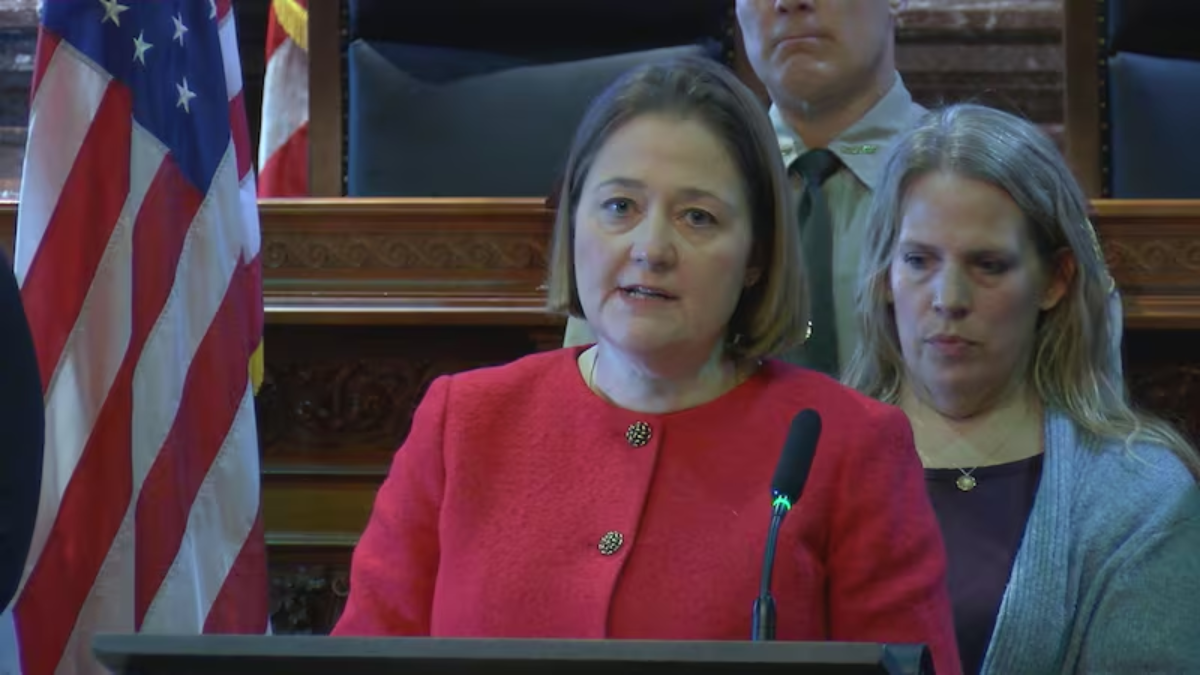A woman from Arizona has been sentenced to nearly six years in federal prison after being convicted of mailing fentanyl to Dubuque, Iowa. The case highlights the ongoing battle against the distribution of deadly opioids and the legal consequences for those involved in drug trafficking.
Details of the Drug Trafficking Operation
According to court documents, the woman, whose name has not been released publicly, was arrested after law enforcement officials intercepted multiple packages containing fentanyl. These packages were sent from Arizona to Dubuque over several months, fueling concerns about illicit drug distribution networks operating across state lines.
Federal prosecutors stated that the woman knowingly participated in a scheme to ship fentanyl to Iowa, where the synthetic opioid has been linked to numerous overdoses. The investigation was conducted by the Drug Enforcement Administration (DEA) in coordination with local law enforcement agencies in both Arizona and Iowa.
Authorities discovered that the woman was working with other individuals to distribute fentanyl through the mail, a method that has become increasingly common among drug traffickers. The drugs were often concealed in everyday items to avoid detection. However, enhanced monitoring by postal inspectors and federal agents led to the discovery of the illegal shipments, culminating in the woman’s arrest and prosecution.
Sentencing and Legal Ramifications
The woman received a sentence of five years and eleven months in federal prison, followed by supervised release. Prosecutors argued that her actions contributed to the growing opioid crisis, which has devastated communities nationwide.
During the sentencing hearing, the judge emphasized the severity of the crime, noting that fentanyl is responsible for thousands of overdose deaths each year. The court also cited the defendant’s lack of remorse and prior criminal history as factors that influenced the length of the sentence.
Additionally, the judge stated that sending fentanyl through the mail presented an extreme risk to postal workers and unsuspecting individuals who might come into contact with the lethal substance.
The conviction is part of a broader crackdown on fentanyl trafficking by federal and state authorities. Law enforcement agencies have been intensifying their efforts to track and dismantle drug supply chains that utilize the postal system for distribution.
The Rising Threat of Fentanyl in the U.S.
Fentanyl is a powerful synthetic opioid that is 50 to 100 times more potent than morphine. Even small amounts can be lethal, making its distribution a top concern for law enforcement agencies. In recent years, fentanyl-related deaths have surged, prompting authorities to crack down on trafficking networks.
According to the Centers for Disease Control and Prevention (CDC), synthetic opioids like fentanyl accounted for nearly 75% of all opioid-related deaths in the U.S. in 2023. Many of these deaths resulted from counterfeit pills or substances laced with fentanyl, often without the user’s knowledge.
Law enforcement officials warn that fentanyl is frequently mixed with other drugs, such as heroin and cocaine, increasing the risk of accidental overdoses. Additionally, illicitly manufactured fentanyl has flooded the market, making it more accessible and deadly than ever before.

Law Enforcement’s Efforts to Combat Fentanyl Trafficking
Federal and local authorities continue to implement aggressive measures to combat the spread of fentanyl. The DEA has increased surveillance and tracking of suspicious shipments, while lawmakers push for stricter penalties for those caught trafficking synthetic opioids.
In this case, the successful interception of fentanyl shipments helped prevent potentially fatal overdoses in Dubuque. Law enforcement officials have urged the public to remain vigilant and report any suspicious activity that may indicate drug trafficking.
To further curb fentanyl distribution, authorities are working closely with international partners to disrupt supply chains originating from China and Mexico, where much of the illicit fentanyl is manufactured.
Community Response and Public Awareness
Dubuque community leaders and public health officials have expressed concerns over the impact of fentanyl on local residents. Many advocate for increased awareness campaigns and resources for individuals struggling with substance abuse.
Local organizations are working to educate the public on the dangers of fentanyl and provide support for those affected by addiction. Public health officials stress the importance of treatment programs and harm reduction strategies to combat the crisis effectively.
Naloxone, a life-saving medication that can reverse opioid overdoses, is being distributed more widely in communities across the country. Officials encourage individuals, especially those at risk of encountering fentanyl, to carry naloxone and learn how to use it properly.
What the Public Can Do to Help
Authorities urge the public to take an active role in the fight against fentanyl trafficking. People can help by:
- Reporting any suspicious packages or activities related to drug trafficking.
- Educating themselves and others about the dangers of fentanyl.
- Supporting local initiatives that provide addiction treatment and harm reduction services.
- Advocating for stronger policies to combat the opioid crisis at the state and federal levels.
Families of individuals struggling with opioid addiction are encouraged to seek professional help and access available resources to prevent tragic outcomes. Law enforcement and health officials continue to stress that collaboration between communities and authorities is key to effectively addressing the fentanyl epidemic.
Conclusion
The sentencing of the Arizona woman serves as a stark reminder of the serious legal repercussions associated with fentanyl trafficking. As the opioid epidemic continues to ravage communities across the U.S., law enforcement and public health officials remain committed to stopping the distribution of dangerous substances and supporting those impacted by addiction.
This case also underscores the importance of vigilance and cooperation between law enforcement agencies and the public in the fight against fentanyl. By working together, communities can take meaningful steps to reduce the impact of this deadly drug.
For more information on the fight against fentanyl and resources for addiction recovery, visit the Centers for Disease Control and Prevention (CDC) at www.cdc.gov.
Disclaimer – Our team has carefully fact-checked this article to make sure it’s accurate and free from any misinformation. We’re dedicated to keeping our content honest and reliable for our readers.
